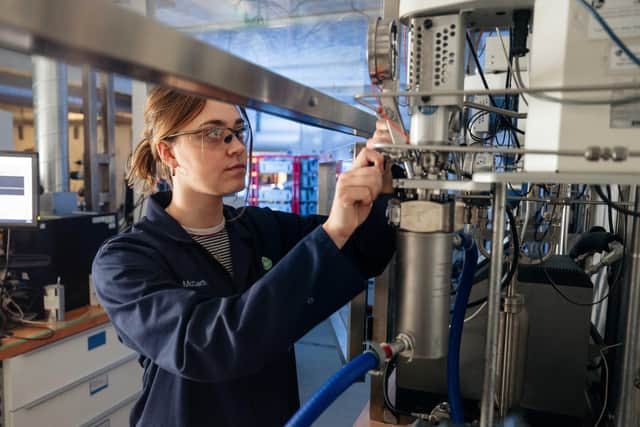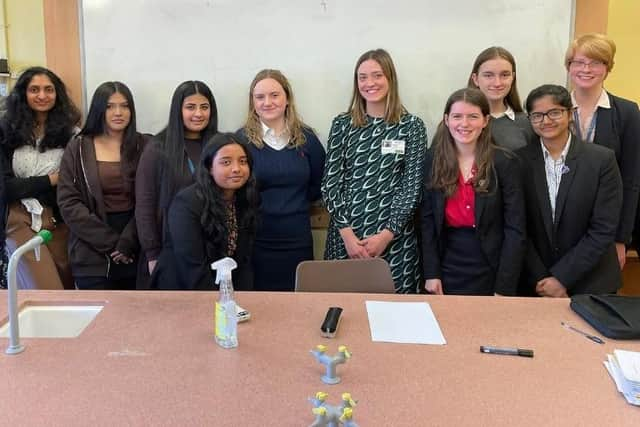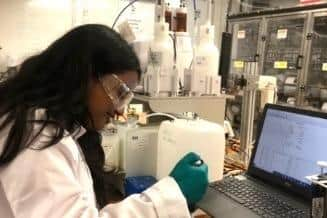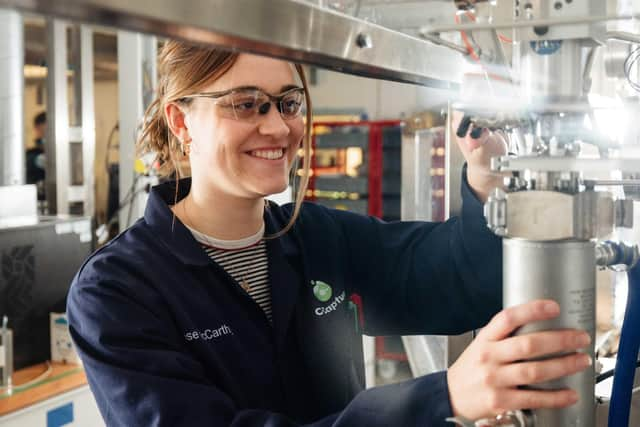Leeds chemist from C-Capture helps to get young people into STEM amid climate change issue
In addition, she also wants young people to consider careers in science and has been back toher old school, Wakefield Girls’ High, to ecnourage pupils interested in STEM subjects (science, technology, engineering, and mathematics).
"One of the reasons that I like working here is because I feel like I'm genuinely making a difference,” says Rose, 26, of Rothwell.
Advertisement
Hide AdAdvertisement
Hide Ad"We're actually doing something that could help – well, it will help climate change – and will hopefully get us to a better place in the next few years if we can take off with it.”


C-Capture works with sectors such as power generation, cement, steel and glass, taking their gases and using a solvent which “selectively reacts with CO2”, removing it from the gas stream.
Rose says: “The main problem with with climate change is the dramatic increase in carbon dioxide emissions since the 1900s and that's one of the major reasons that we're seeing the temperature rise today. So if we can slow down or hold emissions of CO2 into the atmosphere, that's going to slow down the temperature rise as well.
"And it's not just about the power sector, where we could use renewable energy and you wouldn't have carbon dioxide emissions anyway, but it's things like cement – where we know it's a vital material that we need to use, but actually making cement generates carbon dioxide and, at the moment, there's no way of stopping that other than us capturing that CO2.”
Advertisement
Hide AdAdvertisement
Hide AdC-Capture, based at the Evans Business Centre, was founded in 2009 as a spin-out company from the School of Chemistry at the University of Leeds.


Rose first started working there the month after graduating from the University of Nottingham with a first class Master’s degree in chemistry in July 2018.
She is a former Wakefield Girls’ High School pupil who originally intended to study physics at university but changed to chemistry.
"I don't think I was really thinking about the career prospects necessarily. I just thought, I like doing it, I want to carry on doing it,” she says.
Advertisement
Hide AdAdvertisement
Hide AdRose says the school was supportive of its pupils going into any chosen field but can remember at the time the comparatively low numbers choosing to study sciences.


"I think it is typically seen as a male subject and maybe it's a confidence thing, they think ‘I can't do that’ because they don't see girls and women in these kinds of careers and it's not very visible."
She adds: “You don't really see that many scientists on TV and that kind of career explored anywhere. And then when you do see it, like science and engineering, it's male-dominated anyway.”
What was it she loved about chemistry?
"I like learning and there's so much to learn about chemistry and and science in general. I like the fact that we don't necessarily know everything. And you've got to work things out. You can learn the theory and then you can also go into the lab and actually see it in real life.”


Advertisement
Hide AdAdvertisement
Hide AdRose adds: “I like seeing like the real world applications of science, as well, and what you can actually do with it. I find it really exciting.”
She is now working towards becoming a Chartered Chemist, meaning more engagement in the wider community to promote STEM.
In March last year she visited Wakefield Girls’ to deliver a talk on chemistry careers and the different options available within the field. It led to a number from the school, including Mathusa Logeswaran, and one from Queen Elizabeth Grammar School, since taking up work experience at C-Capture.
“People at that school, at least, can see that there is a future in science and I think a lot of the younger generation are really engaged in science now because of the climate crisis,” says Rose. “And also, maybe (because of) the pandemic, they have been able to see more scientists and the need for scientists and engineers, and hopefully that's inspired more young people to to get involved. If I can just inspire one person at school, that’ll be good.”
Find out more at: c-capture.co.uk